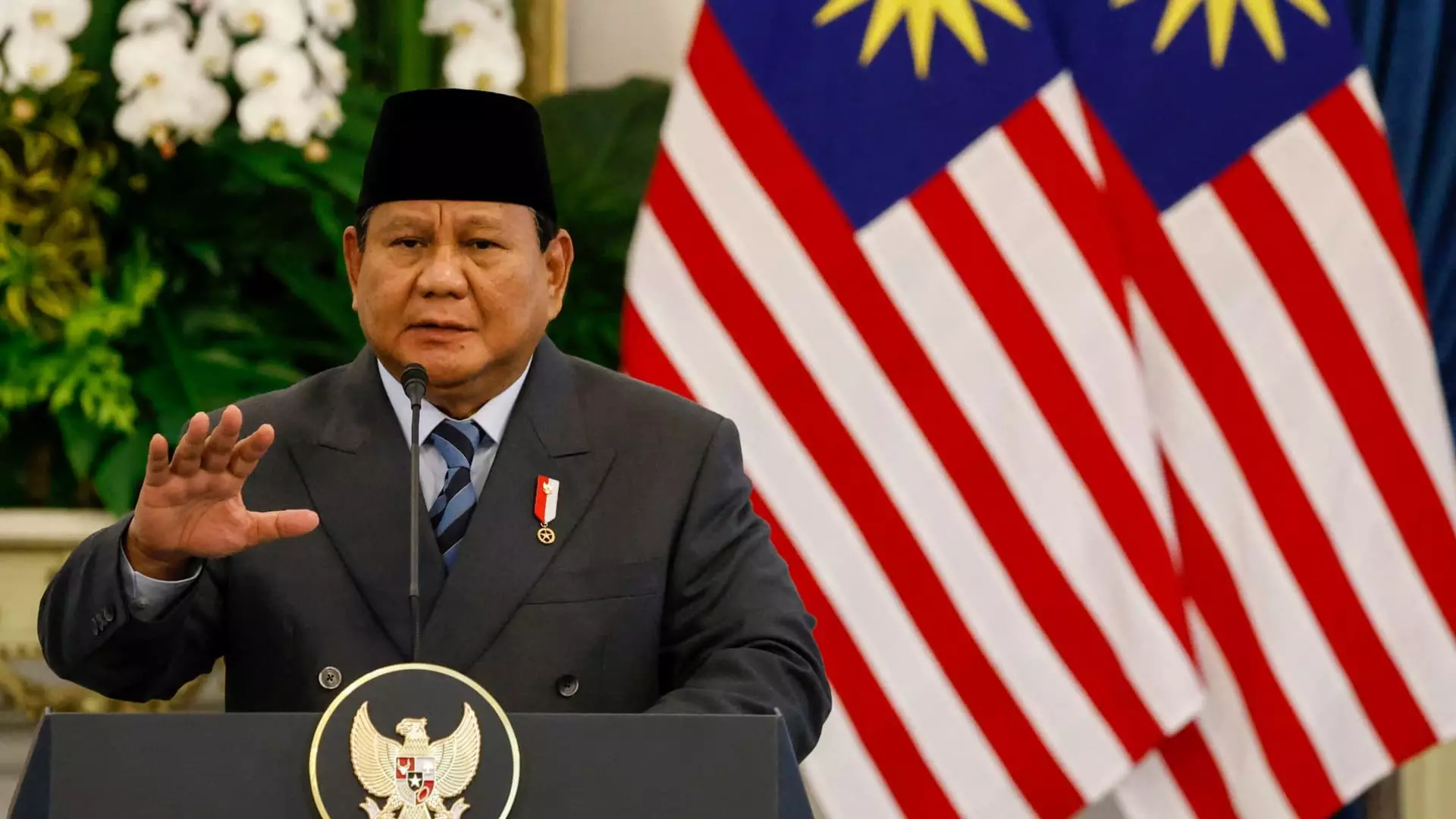The recent announcement of a trade agreement between the United States and Indonesia has been heralded as a significant milestone—yet, beneath the surface, it reveals a pattern of superficial gains that mask deeper imbalances. Publicly, this deal promises to reduce tariffs and open markets, but the reality is far more complex. Such agreements often serve as window dressing for a system that favors corporate interests over genuine reciprocity and fair trade. It’s crucial to scrutinize whether this deal is a step toward equitable trade or merely a strategic PR move to bolster political standing amid a turbulent economic climate.
The framework proposes to cut Indonesia’s tariffs on American goods to 19%, a notable decrease from the initially imposed 32%. While this sounds like progress, it conveniently overlooks the fundamental question: who really benefits? For the U.S., it’s a calculated concession, masking the reality of its dominant market position. Meanwhile, Indonesia, a developing nation with a fragile economy, is pressured to open its markets wider, often at a cost to its local industries and economic sovereignty. The deal’s narrative of “reciprocity” rings hollow when viewed through the lens of global power dynamics—an asymmetrical relationship where one side enforces rules that favor its economic agenda.
What the Deal Truly Masks
Beneath the glossy veneer of trade liberalization lies a strategy aimed at sustaining American economic influence while placating domestic industries. The promise of a $3.2 billion aircraft deal and $15 billion in energy purchases signifies economic opportunities, yet these are predominantly transactions that reinforce existing American regional dominance. They do little to address Indonesia’s structural challenges or foster sustainable growth for its local economy.
Furthermore, the agreement’s focus on tackling “non-tariff barriers” appears promising but often results in superficial compliance measures designed to placate trade critics rather than substantive reform. In reality, such barriers are deeply embedded in local regulations and cultural practices—factors that international agreements rarely overhaul effectively. These superficial efforts may allow corporations to access new markets but do little to empower Indonesian businesses or reduce systemic inequalities within their economy.
The White House’s framing of this arrangement as a “fair, balanced, and reciprocal” trade deal is, at best, optimistic spin. It ignores the reality that American economic interests tend to dominate when negotiations involve developing countries with less leverage. For Indonesia, the deal might seem advantageous on paper, but the long-term risks include dependency on foreign investment and adverse effects on local industries, which could be sacrificed for short-term gains.
Implications for Global Trade Misconduct
The broader context suggests this agreement is part of a pattern of strategic moves by the U.S. to assert influence without necessarily promoting equitable growth. Similar deals with nations like Vietnam and the Philippines push a narrative of American leadership in global trade, yet their terms remain unconfirmed or under scrutiny, hinting at a larger pattern of negotiation opacity and unequal partnerships.
This approach perpetuates a model of economic diplomacy that prioritizes U.S. interests over mutual benefit. It highlights the dangers of allowing high-level political announcements to serve as smokescreens for negotiations that lack transparency and genuine fairness. While the rhetoric touts fairness and reciprocity, behind closed doors, the negotiations tend to favor the more powerful economy, often at the expense of weaker nations’ sovereignty and development.
In essence, the so-called “reciprocal trade” framework may offer superficially better terms, but it fails to challenge the fundamental structural inequalities baked into the global trade system. Moving forward, genuine fairness demands that negotiations prioritize equitable economic development, respect for local industries, and the establishment of rules that genuinely balance power—goals that current agreements, including this latest one, seldom achieve.


Leave a Reply